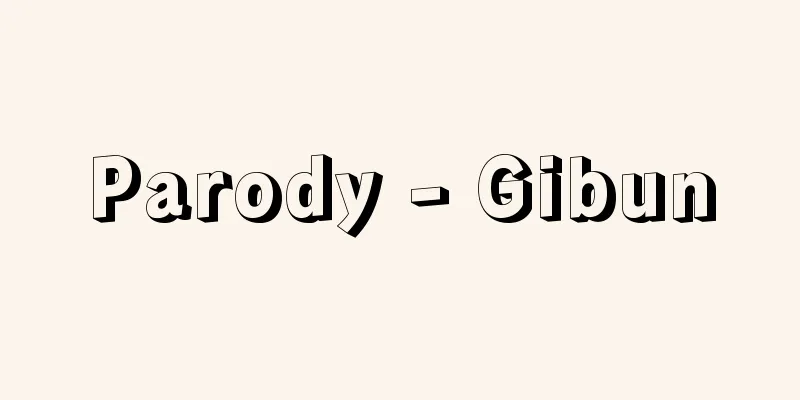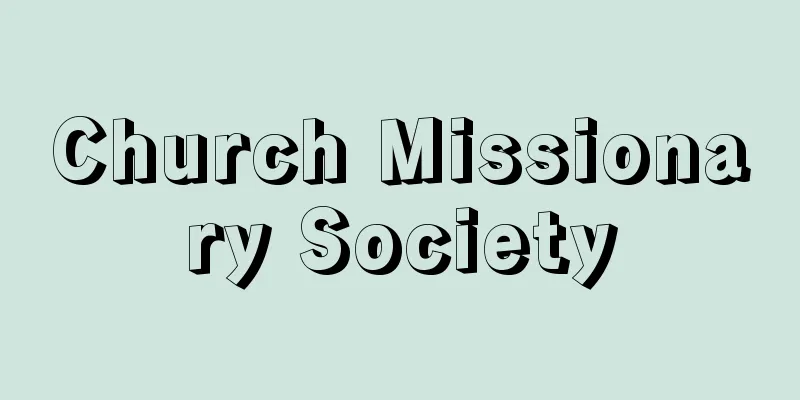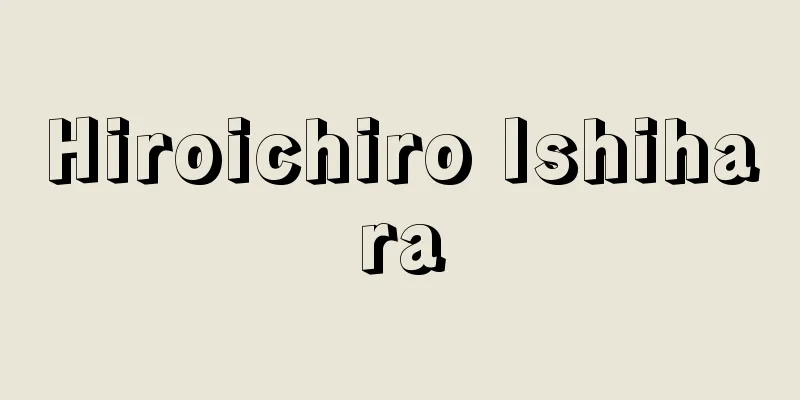Parody - Gibun

|
...It translates to humorous writing, parody poetry, rhapsody, etc. The word originates from the Greek word parōidia, which means para (pseudo) + ōidē (song). *Some of the terminology explanations that mention "parody" are listed below. Source | Heibonsha World Encyclopedia 2nd Edition | Information |
|
…戯文,もじり詩文,狂詩などの訳語をあてる。語源はギリシア語parōidiaで,para(擬似)+ōidē(歌)を意味する。… ※「戯文(パロディ)」について言及している用語解説の一部を掲載しています。 出典|株式会社平凡社世界大百科事典 第2版について | 情報 |
Recommend
African wild ass - African wild ass
...It has a black line running down its back. Wil...
cord moss
…Hyotan-goke has been studied in detail from many...
Accounting record - Kaisanki
A popular Japanese mathematics book. Written by Ya...
Grater - Oroshigane
…The tool for making oroshi appears in the “Nippo...
Muddy Okuma
...A type of tag. It has similar names such as &q...
Marlowe - Christopher Marlowe
English poet and playwright. He was a representat...
Cathodic protection - Cathodic protection
Also known as cathodic protection, this is a meth...
Glanders - Biso
Also known as equine glanders. Originally caused b...
Kamaran Island (English spelling)
An island in the southeastern Red Sea that is part...
Funaki-so
A manor in Omi Province. The same Funaki Manor exi...
domus religiosa (English spelling) domusreligiosa
...A place where Christian monks and nuns live to...
Takemune - Busou
The 15th emperor of the Tang Dynasty, China (reig...
natürliche Verbindlichkeit (English notation) naturliche Verbindlichkeit
...In addition, in early Roman law, it was said t...
College baseball - daigaku yakyuu
College students enjoy baseball as one of their c...
Guaiac Resin
It is a resin secreted from the bark of the Tribul...









